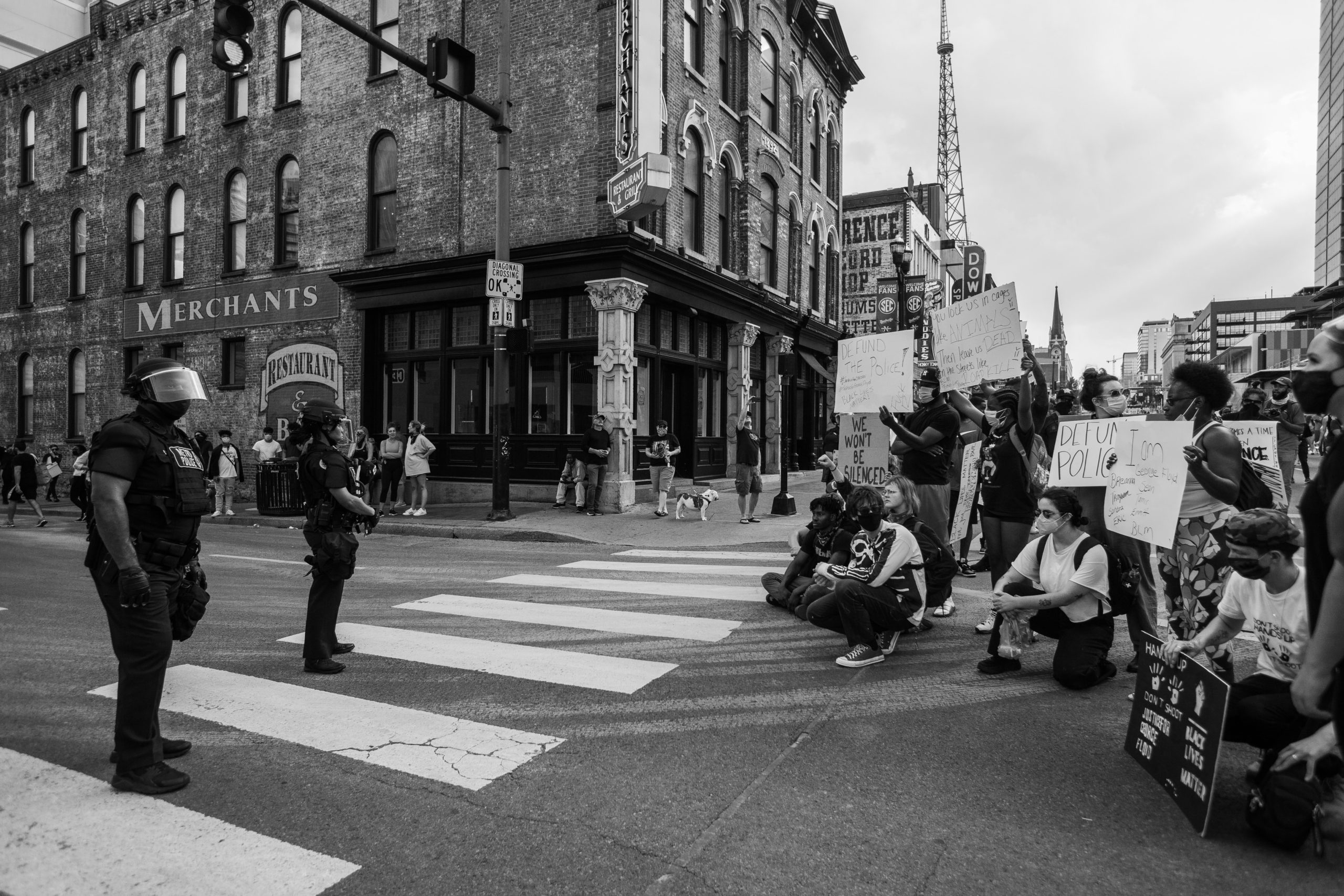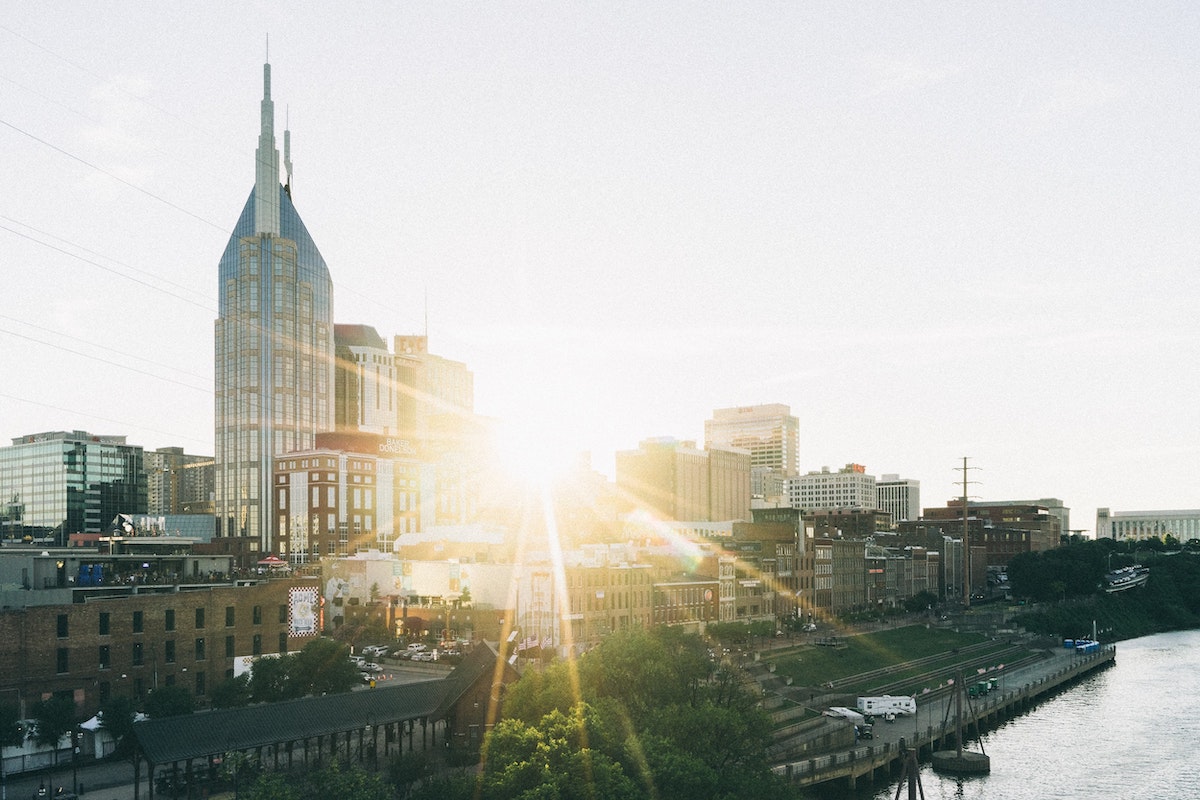As we approach April 8, anticipation grows for one of nature’s most awe-inspiring events – a solar eclipse. This celestial spectacle will grace the skies over Canada, the U.S. and Mexico, offering a unique spectacle for a large swath of North America.
While Nashville was in the path of totality during the 2017 eclipse, this year, residents and visitors will witness a partial eclipse, covering approximately 95% of the sun. You must understand the science behind this celestial event and how to observe it safely, whether you plan to stay in the Metro Nashville region or travel a little bit farther west.
The Science Behind a Solar Eclipse
A total solar eclipse occurs when the moon moves directly between the Earth and the sun, completely obscuring the sun from view and casting a shadow over specific areas on Earth. This phenomenon creates a moment of daytime darkness, allowing observers in the path of totality to experience a dramatic change in the environment. Temperatures drop, stars become visible and the sun’s outer atmosphere glows in a breathtaking display.
In contrast, a partial solar eclipse happens when the Earth, moon and sun do not fully align. For observers outside the path of totality, the moon will only cover part of the sun’s disk, making it resemble a cookie with a bite taken out of it. In Nashville, with about 94.92% coverage, the eclipse will still dim the daylight significantly, offering a remarkable sight.
The 2024 Great North American eclipse will last twice as long as the one in 2017. Most people in the path of totality will be in the moon’s shadow for three and a half to four minutes. In Nashville, the partial solar eclipse will start around 12:44 p.m. and end at 3:20 p.m., with maximum coverage at 2:03 p.m.
The Phases of a Solar Eclipse
A total solar eclipse occurs in five distinct stages.
- Partial eclipse: The event begins when the moon starts to move in front of the sun, gradually covering its disk. This phase can last for over an hour. Observers will see the moon slowly obscuring the sun until it resembles a crescent. You must wear specially designed eclipse glasses during this phase to protect your eyes from the sun’s rays.
- Shadow bands: Just before totality, you may glimpse shadow bands – elusive, thin, wavy lines of alternating light and dark moving across the ground. Shadow bands result from Earth’s atmosphere refracting the sun’s light, like the reflections at the bottom of a swimming pool. They are fleeting and require clear, flat surfaces to see properly.
- Baily’s Beads: As the moon continues to move across the sun, the rugged lunar landscape allows sunlight to pass through in some places but not others. The result is Baily’s Beads, named after Francis Baily, who first described them in 1836. These beads of light appear around the moon’s edge and are the last glimpses of sunlight before totality.
- Diamond Ring: The Diamond Ring effect is one of the most dramatic phenomena of a total solar eclipse. Just before totality, Baily’s Beads reduce to a single point, creating the appearance of a bright diamond set against a ring of light. This spectacular sight signals that totality is only seconds away. You must keep your eclipse glasses on until the diamond disappears and totality begins.
- Totality: Totality occurs when the moon completely obscures the sun, plunging the day into an eerie twilight. This phase is the only time when it is safe to remove your eclipse glasses and observe the spectacle with the naked eye. The sun’s corona, its outer atmosphere, becomes visible as a glowing ring around the moon’s dark silhouette. You may also see stars and planets in the darkened sky. Expect to notice a drop in temperature and a sudden hush in bird and insect noises as the natural world reacts to the sudden darkness. Once the moon begins to move away and the first flash of sunlight reappears, put your eclipse glasses back on to safely watch the remaining phases of the eclipse as they happen in reverse order.
Safety Tips for the Great North American Eclipse
Looking directly at the sun outside the few minutes of totality can permanently damage your eyes. The intense solar rays can burn your retinas, leading to solar retinopathy, a condition that can result in blurred vision or even permanent blindness. This risk is present even in a partial eclipse, as the remaining crescent of sunlight is still intense enough to cause harm.
To safely watch the eclipse, you need specialized glasses that meet the ISO 12312-2 international standard. These glasses block out more than 99.999% of the sun’s rays, allowing you to view the spectacular sight without adversely affecting your vision. Remember, your standard sunglasses are not sufficient to protect your eyes from solar retinopathy, even if they have a UV-blocking coating. If you don’t have ISO-certified eclipse glasses, consider watching the eclipse through a pinhole projector or a telescope equipped with a solar filter.
Totality reveals the solar eclipse’s majesty, offering a breathtaking spectacle that can be profoundly moving and unforgettable. As April 8 approaches, prepare to witness Nashville’s partial eclipse safely and enjoy an event so rare it won’t happen again for another 20 years. Whether you’re an experienced astronomy enthusiast or a curious first-time observer, the solar eclipse offers a moment of connection with the cosmos, reminding us all of the wonders beyond our world.




